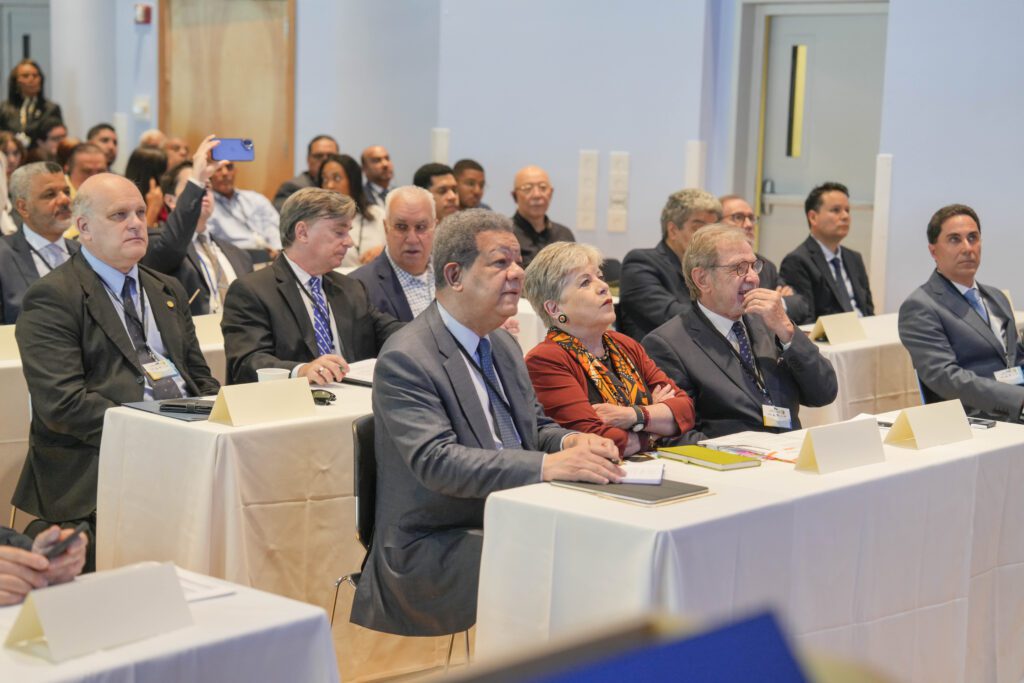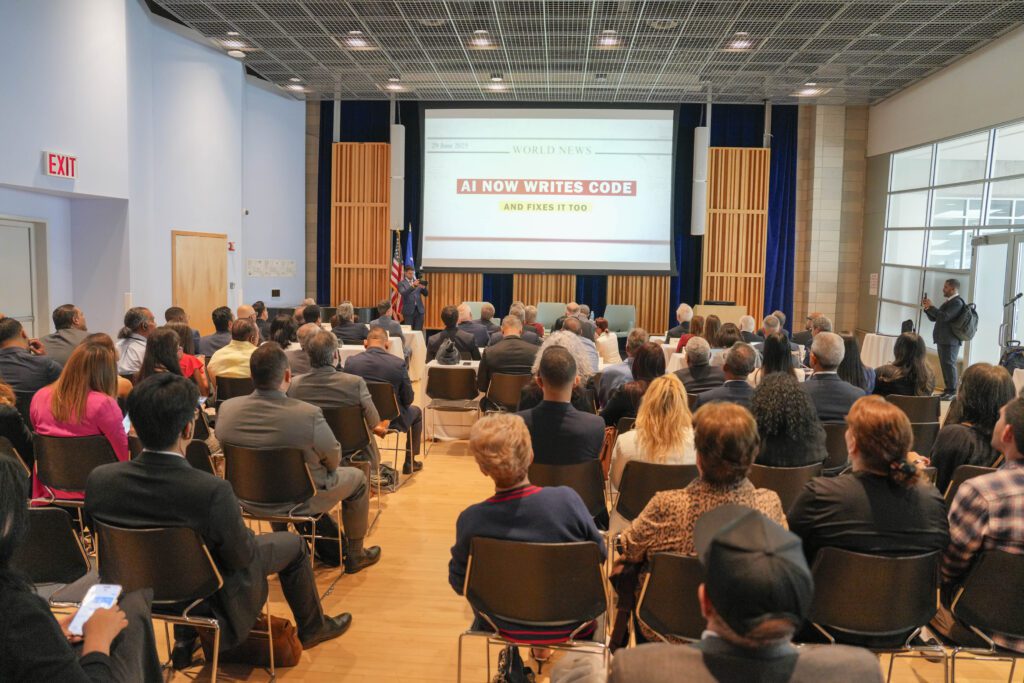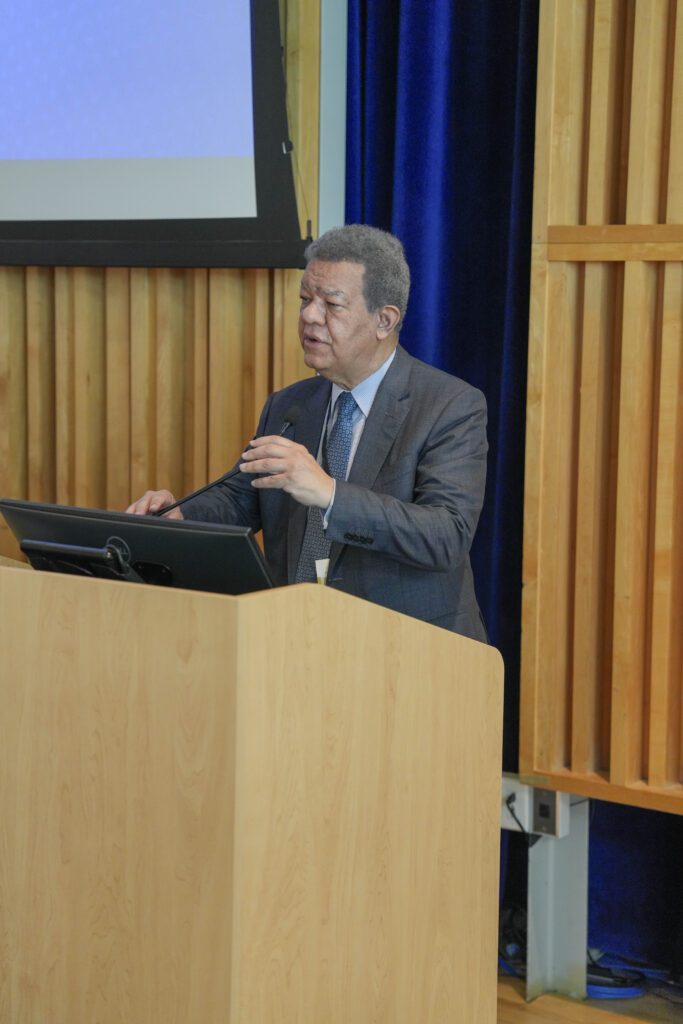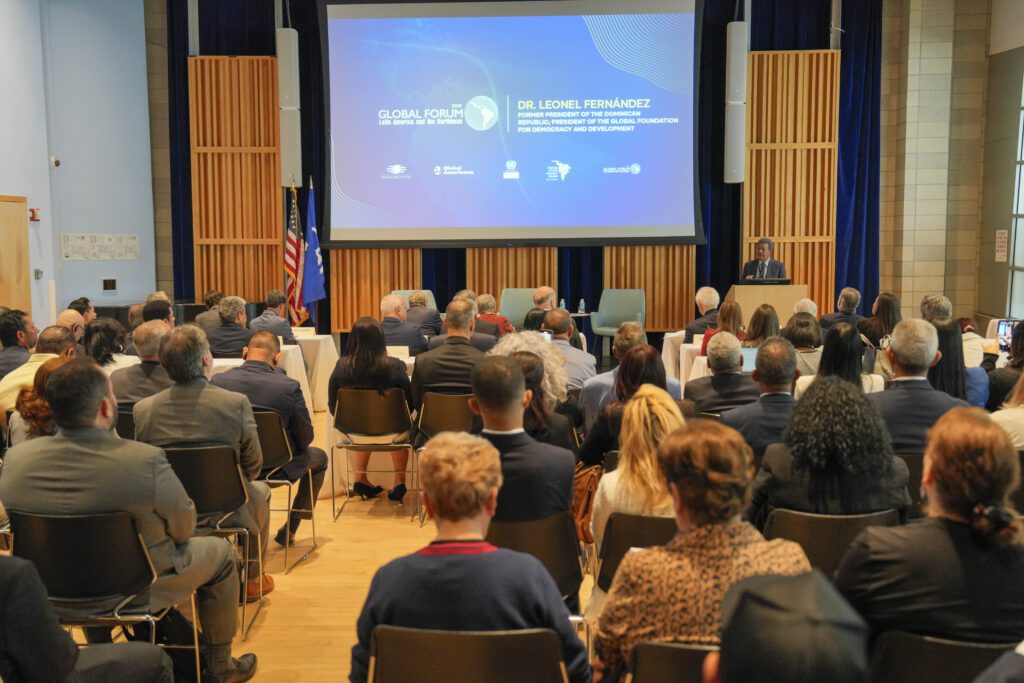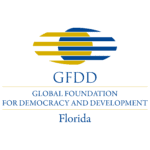New York, NY – 24 September 2025 – The Global Foundation for Democracy and Development (GFDD) successfully convened the VII Global Forum Latin America and the Caribbean at Columbia University’s Lerner Hall in New York City. The annual gathering drew heads of state, cabinet ministers, legislators, economists, scholars and civil‑society leaders from across the Western Hemisphere to assess the region’s most pressing challenges and opportunities. Organized by GFDD and its sister organization FUNGLODE, the 2025 Forum provided a platform for candid dialogue on the resilience of democracy, sustainable development, regional cooperation and the transformative impact of new technologies such as artificial intelligence. Sessions were livestreamed globally, expanding participation beyond those in attendance.
In his opening remarks, Dr. Leonel Fernández, former president of the Dominican Republic and president of GFDD/FUNGLODE, urged participants to reflect on shifting global economic dynamics and the consequences of a deepening rivalry between the United States and China. Fernández noted that changes in U.S. tax and migration policy could erode the competitiveness of U.S. firms, benefiting China’s industries and accelerating that country’s lead in technologies such as electric vehicles and artificial intelligence. “We are living through a transformation of the global economy that demands our attention,” he said. “Latin America must understand these shifts and position itself to thrive in an increasingly multipolar world.”
The first day’s theme, “Global and U.S. economies in 2025: trends, challenges and regional consequences,” featured economist Andy Dauhajre of the Fundación Economía y Desarrollo, who underscored the need for policy reforms to ensure competitiveness in the face of China’s economic ascent. George Gray Molina, principal advisor at the United Nations Development Programme, warned that the United States could confront recession or inflationary pressures and that Latin American growth continues to lag behind other emerging markets. Molina stressed that the region must diversify production, reduce dependence on commodity exports and strengthen regional integration to build resilience.
Over the course of the day, panels addressed a wide spectrum of issues: the performance of global and U.S. economies, development prospects in Latin America, the 2025–2026 regional election cycle, the growing impact of the Latino vote in U.S. elections, immigration and social integration, and the challenges of democracy in the era of artificial intelligence. Discussion topics included:
- Democratic Resilience – safeguarding democratic governance against populism and authoritarianism.
- Regional Integration – strategies for deepening economic cooperation and geopolitical unity among Latin American and Caribbean countries.
- Sustainable Development – exploring inclusive economic models that promote growth while preserving the environment.
- Technology & Governance – examining how artificial intelligence can enhance transparency, efficiency and equity in public administration.
Sessions were moderated by leading academics and journalists and included remarks from Alicia Bárcena, Mexico’s Secretary of Foreign Affairs; José Antonio Ocampo, former Finance Minister of Colombia and professor at Columbia University; José Manuel Salazar‑Xirinachs, Executive Secretary of the Economic Commission for Latin America and the Caribbean (ECLAC); Mauricio Cárdenas, former Colombian Finance Minister; Albert Ramdin, Secretary‑General of the Organization of American States (OAS); and U.S. Congressman Adriano Espaillat. Their presence underscored the forum’s role as a bridge between government, academia and civil society.
In a session on democratic challenges, OAS Secretary General Albert Ramdin warned about the resurgence of nationalism and anti‑democratic movements in the region, urging leaders to protect democratic institutions and embrace unity. Mexico’s foreign minister Alicia Bárcena emphasized that Latin American voices are essential in global discussions on geopolitics, sustainability and technology. Congressman Adriano Espaillat highlighted the growing influence of the Latino vote in shaping U.S. policy toward the hemisphere.
The VII Global Forum aimed not only to discuss challenges but to produce actionable solutions. Speakers and delegates emphasized the need to strengthen regional institutions, diversify trade, invest in education and digital infrastructure, and embrace green technologies. Participants called for collaborative problem‑solving and cross‑border partnerships to navigate a world of shifting power dynamics. Sessions also encouraged governments to integrate artificial intelligence responsibly into public services, ensuring that innovations support human development rather than exacerbate inequalities.
The forum concluded with a renewed commitment to building resilient democracies, inclusive economies and sustainable societies. GFDD announced plans to publish a comprehensive report capturing the forum’s key insights and policy recommendations. Livestream recordings will remain available on GFDD and FUNGLODE’s digital platforms to extend the conversation.
The Global Foundation for Democracy and Development is a non‑profit organization dedicated to promoting dialogue, research and public policy solutions that foster democratic values, sustainable development and economic opportunity in the Dominican Republic and the wider Latin American and Caribbean region. Through initiatives like the Global Forum, GFDD brings together diverse stakeholders to analyze trends and craft strategies for the region’s future.For more information, visit globalforumlac.org or contact info@globalfoundationdd.org.
